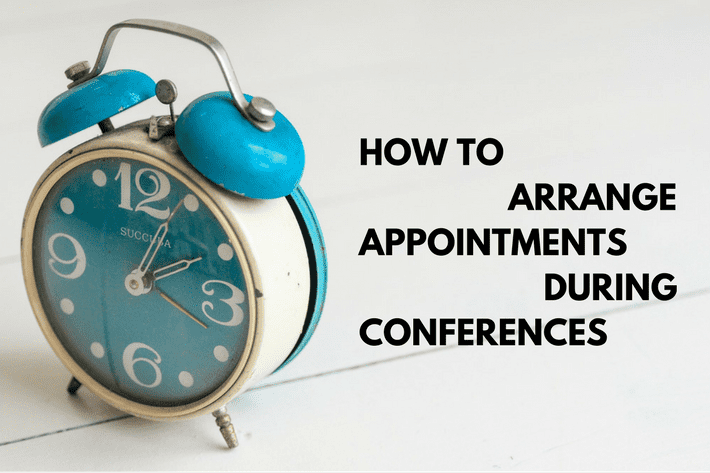
How to arrange appointments during conferences
Read a summary or generate practice questions using the INOMICS AI tool
As well as being opportunities to meet new people, to network, and to hear about the latest research in your field, conferences are attended by people from all around the world. If you need to arrange a meeting with a researcher who is based in another country, then conferences are good locations to use as you'll both be in the same place at the same time.
What sort of meetings might you arrange during conferences? We'll discuss this in today's article.
Arranging a job interview
One common type of meeting at conferences is job interviews. Sometimes, if you're applying for an academic job you'll be invited to visit the hosting institution and interview there. But at other times, it's easier to organise an interview at a conference which you'll be attending. This is especially true for niche fields in which attending one particular conference is very common.
If you have applied for a job, then the hiring committee will let you know if they want to interview you at a conference. The interview will typically take place in the early evening, so that it doesn't clash with talks or other events during the day. You don't need to worry about organising a location, as it's common to use the hotel room of one of the hiring committee for the interview, for the sake of efficiency. It can feel a bit disconcerting to sit on a bed in a hotel room and answer interview questions – but don't worry, this is a typical (if slightly odd) academic practice.
If you're interviewing at a conference, you needn't worry about packing a special outfit – whatever you're wearing to the conference will be fine. It might help to make contact with your interviewers during the conference, so keep an eye out for their name tags and say hello if you see them around the conference centre before your interview.
Setting up a collaboration
Another reason to arrange a meeting during a conference is if you would like to set up a collaboration with another researcher. When you meet someone else who is working on a similar topic to you, you might be able to help each other by sharing data or ideas. It's helpful but not essential to chat in person before making arrangements for a collaboration, and a conference is a good chance to do this.
You needn't set up a formal meeting time to discuss a collaboration, but if your fellow collaborator is very busy then it can help to carve out a specific time to talk with them. Generally, you can make a casual arrangement – for example to eat lunch together one conference day and to discuss your potential collaboration there – and this will be sufficient for your needs.
Don't worry about hammering out the exact details of your collaboration at this point. The aim of a first meeting is for you to get to know each other a little bit, to trade knowledge, and to float a few ideas for how your collaboration could operate. You can straighten out all of the practicalities later over email, so in your first meeting you should focus on getting inspired and seeing if you and your collaborator fit well together.
Talk to someone whose work you've read
A different reason to set up a meeting at a conference is if there is someone whose work you particularly admire and you would like to get their input on an issue you are working on. This is particularly true if you are a more junior researcher and you don't have a large network yet. Conferences can be very busy for senior researchers, so they may not necessarily have time to talk with you, but you can always ask. If you're looking for advice on careers or on research, it can help to get input from someone experienced in the field.
Generally, these kind of meetings happen spontaneously after talks or at social events. But if there's someone you know will be attending a conference and you want to talk with them, trying dropping them an email beforehand. It will help if you include a short list of specific questions that you want to discuss with them in your email, so they know what to expect. Ask if they have the time to meet with you, and let them choose a time and location that is convenient to them











